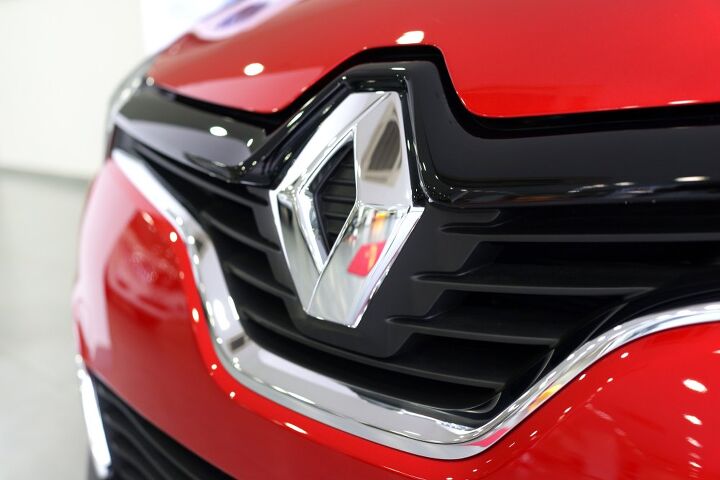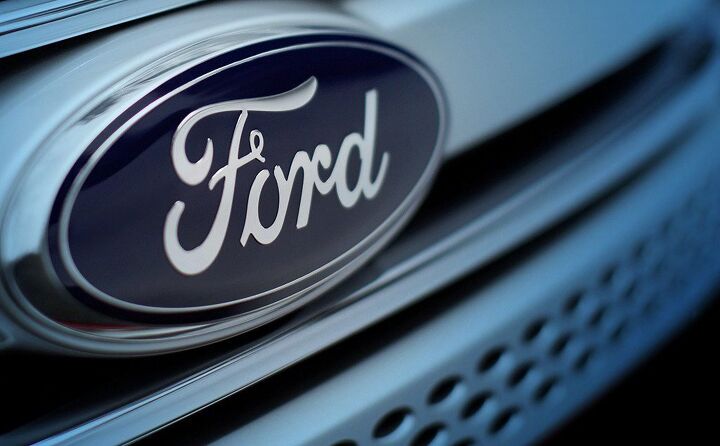#IndustryNews
Japan Tweaks Rules Regarding Foreign Investments
Japan released a list of companies subject to new foreign-ownership rules on Friday, with automakers included in the document. The adjustment influences how outside investment will be handled in regard to business sectors crucial to national security by the nation’s Ministry of Finance.
Foreign outfits buying a stake of 1 percent (or more) in Japanese companies will now face a pre-screening process to ensure they’re not a threat. The old benchmark for such action was set at a substantially higher 10 percent.
While the language used in the document isn’t targeted and largely pertains to additional scrutiny in the general sense, this has everything to do with China. It also mimics measures taken in the United States and Europe to avoid further instances of intellectual property theft (or simply having sensitive information leaked to the Chinese Communist Party). It’s still risky, however, as about a third of Japanese stock is owned by investors from outside its borders. Meanwhile, the nation is hoping to ramp up investment to boost its economy.
Did Chinese Auto Sales Recover Last Month?
The China Association of Automobile Manufacturers (CAAM) reports that April was healthier than expected, resulting in an estimated 2 million new vehicle sales. This would be the first time in a couple years the market has seen any monthly growth, with CAAM taking to the Tencent-owned WeChat to announce a single-percent gain over April 2019.
Considering the pandemic is anticipated to suppress global auto sales by anywhere from 10 to 20 percent, it seems premature to call anything a victory. Likewise, influence from the Chinese Communist Party has made any statistics coming out of the country highly suspect. Much of the world is currently under the impression that the nation’s leadership is in an all-out effort to project the country’s strength after failing to share helpful information in a timely manner and downplaying its coronavirus-related deaths. We don’t know what information is credible, especially since all groups (which includes individuals, state institutions, and corporations) are required by law to have direct ties to China’s only political party.
So that’s it then? It’s all bunk? Not quite. While there are plenty of reasons to doubt information coming out of China, there are also reasons to buy what CAAM is selling.
Nissan Temporarily Shutters Global Headquarters, Japanese Factories
Nissan said Tuesday that it plans to temporarily shut down its global headquarters and several factories in Japan to help curtail the spread of the novel coronavirus. While Japanese automakers are legally allowed to operate within the country (with conditions), most have instituted some amount of health countermeasures independently. The nation has also formed a joint council for automakers and component suppliers to work with the government in maintaining supply chains while avoiding future contagion risks.
Despite the level of precautions taken, the country’s automakers are still estimated to lose at least $1.6 billion as the pandemic suppresses demand around the world. Nissan, which issued profit warnings in 2019, went into 2020 expecting to eliminate thousands of positions so it could begin amassing $4.4 billion in savings by 2023. Marketing budgets and product lineups would also need to be rejiggered dramatically to assure profitability moving forward. With the coronavirus further complicating the company’s strategy, May’s idling could be about more than just containing the coronavirus.
Report: Subprime Buyers Not Paying Auto Loans
As the resulting complications of coronavirus lockdowns obliterate the economy, reports have emerged that subprime car buyers are beginning to skip payments. Delinquencies were expected to come up a bit this year, even before local governments started issuing lockdown orders, but the swift economic impact of these health initiatives have proven wider-reaching than anyone anticipated.
Normally, the status of the more volatile subprime market is a useful tool in assessing the financial well-being of the country as a whole — sort of an early warning device for economists. However, getting an accurate read on who stopped paying could be hard during the pandemic. Many lenders are offering deferral programs to keep one or two delinquent payments from turning into full-blown defaults. Still, the initial signs are about what you’d expect, and it plants another economic red flag into American soil.
Renault Ends Chinese Partnership, Looks for a New Start
With the rippling economic effects of the coronavirus outbreak starting to take hold, some industry analysts have begun floating the increasingly popular theory that various markets could stage a retreat from China. While the Chinese Communist Party’s mishandling of the pandemic — including cover-ups (and the possible manipulation of the World Health Organization) that ultimately encouraged the virus’ spread — are often cited as the impetus for the change, the actual decisions will be largely economic. COVID-19 threatens countless nations’ financial welfare as it simultaneously disrupts global supply chains.
The virus has also sent the auto industry into a holding pattern as manufacturers and suppliers hemorrhage money. While the assumption exists that this situation could encourage international automakers to refocus on domestic production, there haven’t been many examples to point to. Renault changed that this week, announcing plans to abandon its joint venture with China’s Dongfeng Motor Corporation. The move, however, may have less to do with the presumed industrial exodus than the company’s general financial situation.
Subaru Extends Shutdown, Cites Unpredictable Chinese Supply Chains
Subaru is joining the long list of automakers closing shop on account of the coronavirus. Japanese production is being suspended at the automaker’s main plaint in the country’s Gunma prefecture from April 11th through the first of May. It’s also idling the Oizumi engine facility as it announces plans to extend the suspension of its U.S. facility in Indiana. The plant will now be idled through April 20th.
While some of the closures are due to social distancing obligations, the rest is down to parts allocation. Subaru is heavily reliant on components manufactured in China, and it’s still not clear how things are actually going there. What is clear is that Subaru (and plenty of other manufacturers) can’t do without its robust industrial sector operating at full strength. Subaru CFO Toshiaki Okada said in February that “it’s impossible to manufacture cars without China.”
FCA Deferring Payment for Salaried Employees
Fiat Chrysler Automobiles is deferring 20 percent of salaried workers’ pay until June while CEO Mike Manley endures a 50-percent cut to his annual earnings. With the pandemic still attempting to grip more of North America, this was to be expected. Other domestic nameplates have already issued notices of deferred payments to executives staffers, noting that additional measures would likely need to be taken if COVID-19 fails to recede in the coming months. Seeing the writing on the wall, FCA seems to have jumped straight into phase two.
Status of PSA-FCA Merger Questioned, French Half Says Everything's Fine
Following reports from France that the merger between PSA Group and Fiat Chrysler Automobiles could be upended by the coronavirus, PSA announced that the media got this one all wrong. While the French automaker admitted that economic problems stemming from the outbreak are indeed concerning, it reiterated its commitment to safeguarding employment while adding that a merger makes even more sense now than before.
Still, there are valid reasons to question the current state of the merger agreement established in December via a memorandum of understanding. COVID-19 has sent global markets into a tailspin, with PSA and FCA seeing their share prices seesawing in the wrong direction over the last two weeks.
Ford Defers Payment for Top Executives to Cope With Coronavirus
While Ford Motor Co. plans to reopen several factories by early April, it’s not doing much of anything at present. That’s a standard problem among domestic brands with the coronavirus afoot, and two of them — Ford and General Motors — are coming off sizable restructuring efforts that included staffing reductions in the thousands. Additional cutbacks aren’t desirable; not with everyone watching how these companies handle the outbreak.
As it secures extra spending power from credit lines, Ford knows the steep financial cost of having the majority of its workforce stuck at home (to say nothing of its customers) will be steep. A plan is now afoot to keep jobs secure.
Have You Heard About the Coronavirus Being Bad for the Economy Yet?
As we attempt to wean ourselves off endless discussions the new coronavirus, we’ve noticed there’s not exactly a glut of alternative news out there. Trade shows are being delayed, factories are being idled, and the whole world seems to be in standby mode as we attempt to stall the spread of COVID-19 following its migration out of China.
Regional quarantines in Asia were already doing a number on supply chains, and it wasn’t long before manufacturers around the world began idling production to further slow the virus’s spread. By the beginning of March, it was becoming quite clear that auto sales would suffer significant impacts as people spent the next several weeks isolated in their own homes. Now, the push is on to assess just how much this whole ordeal will impact an OEM’s bottom line.
Report: Chinese EV Subsidies May Be Coming Back
It could be argued that a large portion of the Chinese economy has been propped up by government programs, with electric vehicles making one of the best examples. With a vested interest in battery technology, China did everything it could to encourage industry players to focus on EVs while subsidizing their purchase by consumers. The end result was a country with the highest number of alternative-energy vehicles in the world — and more automotive automotive startups than it knew what to do with.
While the plan was always to force accelerated competition by getting new manufacturing firms to duke it out for supremacy, EV sales were also supposed to remain sky high. Yet they didn’t. China’s auto market began running out of steam far earlier than everyone assumed. When the country nixed electric-vehicle subsidies over the summer, the segment went into a tailspin, with every successive month returning negative growth.
China would like to see things turn around, so it’s mulling the prospect of reintroducing incentives to get EVs into more driveways.
Ford: Future Performance Less About Numbers, More a State of Mind
Dave Pericak, former head of Ford Performance and now responsible for the brand’s icon models, told CNET on the sidelines of the Chicago Auto Show that evolving environmental regulations have forced the automaker to reassess how it views performance.
“A lot of countries are changing regulations so quickly, and so much, they’re almost forcing the performance products out,” he said.
“Our job is going to be two-fold,” Pericak continued. “One is to figure out how to continue to make performance that will exist in some of these regulated countries, even our own, and how do you do it so it’s a global offering?”
It’s a good question. Environmental regulations have indeed forced automakers to downsize displacement and re-familiarize themselves with turbocharging. Electrification is an option growing in popularity too, with many global automakers tossing battery packs into vehicles of all sizes at no small cost to themselves.
Daimler: Here Come the Savings, There Go the Jobs
In November, Daimler announced a restructuring plan that called for the elimination of 10,000 jobs, claiming the effort would result in an estimated 1.4 billion euros ($1.5 billion) in savings by the end of 2022. Chairman Ola Källenius may just be getting warmed up.
According to German outlet Handelsblatt, sources within the company claim austerity measures will be expanded at Tuesday’s investor conference. Källenius is said to raise the job cut figure to 15,000 while scaling back (or dropping) several side businesses that aren’t turning a profit. As well, the automaker will likely axe a few models that don’t fit in with the core brand’s luxury image, starting with the Nissan Navara Mercedes-Benz X-Class.
Jaguar Land Rover to Idle Factories in Britain Next Month
Jaguar Land Rover has decided to stall production at two of its British factories for several weeks. Starting in late February, JLR intends to stop work at both its Castle Bromwich Assembly and Solihull plants until the end of March. The factories won’t be totally inactive for the duration; the manufacturer claims there will be half days intermixed with full-day closures.
Unlike the bulk of plant idlings taking place across the globe (though mostly in China), this has nothing to do with the coronavirus. While the outbreak has begun disrupting supply chains as the PRC attempts to keep the illness in check by barring people inside their homes, JLR said it’s stalling UK production to address falling demand and Brexit complications — the latter of which is beginning to feel like a lame excuse.
Tesla's Stock Remains Insane
Despite it only being a little over a month into 2020, Tesla’s stock has already doubled since New Year’s. Share prices surged to over $900 before Tuesday’s trading, leaving many scratching their heads as to how one of the smallest global manufacturers manages to clean up so well on Wall Street.
Seeking answers, Bloomberg looked to industry analysts and executives from rival car manufacturers to better understand Tesla’s mojo — and determine whether all the stock heat is warranted. The gist appears to be that Elon Musk and company are simply running away with battery technology, something that’s difficult to refute. However, some claims that Tesla has surpassed what constitutes an automaker feel overblown and not entirely consistent with reality.






























Recent Comments